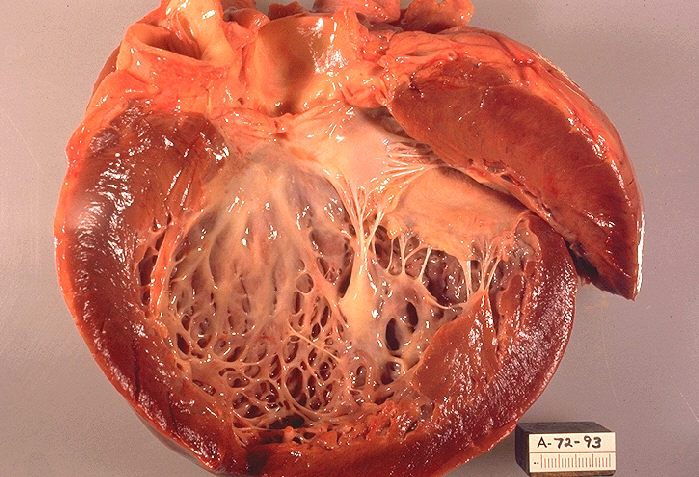Alcohol-Induced Cardiomyopathy: A Hidden Danger of Excessive Drinking
Alcohol-induced cardiomyopathy (AIC), also known as alcoholic cardiomyopathy, is a serious heart condition caused by long-term, excessive alcohol consumption. This often silent disease can weaken and enlarge the heart, leading to heart failure and other complications. In this comprehensive guide, we will delve into the causes, symptoms, diagnosis, treatment, and prevention of AIC, shedding light on a condition that’s often overlooked but can have life-threatening consequences.
Understanding Alcohol-Induced Cardiomyopathy (AIC)
AIC is a form of dilated cardiomyopathy, a condition where the heart’s main pumping chamber (left ventricle) becomes enlarged and weakened, making it less efficient at pumping blood. Alcohol’s toxic effects directly damage the heart muscle cells, leading to inflammation, scarring, and impaired contractility. Over time, this can lead to heart failure, where the heart struggles to pump enough blood to meet the body’s needs.
Causes of Alcohol-Induced Cardiomyopathy
The primary cause of AIC is long-term, excessive alcohol consumption. While the exact amount of alcohol required to trigger AIC varies from person to person, research suggests that heavy drinking over several years significantly increases the risk. Factors that contribute to the development of AIC include:
- Quantity of Alcohol: The more alcohol consumed, the higher the risk of AIC.
- Duration of Alcohol Use: The longer the duration of heavy drinking, the greater the likelihood of developing AIC.
- Genetics: Some individuals may have a genetic predisposition that makes them more susceptible to AIC.
- Nutritional Deficiencies: Excessive alcohol use can lead to nutritional deficiencies, such as thiamine (vitamin B1) deficiency, which can further damage the heart.
Symptoms of Alcohol-Induced Cardiomyopathy
AIC often progresses silently, with no noticeable symptoms in the early stages. As the condition worsens, symptoms may include:
- Shortness of breath: Especially with exertion or when lying down.
- Fatigue and weakness: Due to decreased blood flow to the body.
- Swelling in the legs, ankles, and feet: Caused by fluid retention.
- Irregular heartbeat (arrhythmias): Alcohol can disrupt the electrical signals in the heart, leading to abnormal heart rhythms.
- Chest pain or discomfort: This can be a sign of a heart attack or other serious heart condition.
- Rapid or fluttering heartbeat (palpitations)
- Cough, especially at night or when lying down
- Fainting or dizziness
Diagnosing Alcohol-Induced Cardiomyopathy
Diagnosing AIC involves a comprehensive evaluation, including:
- Medical History and Physical Examination: Your doctor will ask about your alcohol consumption history and perform a physical exam to check for signs of heart failure, such as fluid buildup and abnormal heart sounds.
- Blood Tests: To check for markers of heart damage, liver function, and nutritional deficiencies (especially thiamine).
- Electrocardiogram (ECG or EKG): To measure the electrical activity of the heart and identify any arrhythmias.
- Echocardiogram: An ultrasound of the heart to assess its structure and function. This can show the size of the heart chambers and how well the heart is pumping.
- Cardiac MRI: To get detailed images of the heart and detect any abnormalities. This can be particularly helpful in diagnosing AIC.
- Chest X-ray: To see if the heart is enlarged and if there is fluid in the lungs.
- Cardiac Catheterization: In some cases, a cardiac catheterization may be done to measure pressures in the heart and look for blockages in the coronary arteries.
Treatment of Alcohol-Induced Cardiomyopathy
The cornerstone of AIC treatment is complete abstinence from alcohol. This is the single most important factor in improving heart function and preventing further damage. In some cases, early intervention and abstinence can lead to partial or complete recovery of heart function. Additional treatment options may include:
- Medications: To manage heart failure symptoms, control blood pressure, and regulate heart rhythm. Common medications include ACE inhibitors, beta blockers, diuretics, and antiarrhythmics.
- Nutritional Supplements: Thiamine (vitamin B1) supplements are often given to patients with AIC, as alcohol abuse can lead to thiamine deficiency, which can worsen heart function.
- Lifestyle Changes: Adopting a healthy diet low in sodium and fat, exercising regularly, and managing stress can improve heart health and overall well-being.
- Implantable Devices: In severe cases, pacemakers or defibrillators may be implanted to help regulate heart rhythm or prevent sudden cardiac death.
- Heart Transplant: In end-stage heart failure, a heart transplant may be the only option.
Preventing Alcohol-Induced Cardiomyopathy
The most effective way to prevent AIC is to avoid excessive alcohol consumption. If you choose to drink, do so in moderation, following recommended guidelines.
Living with Alcohol-Induced Cardiomyopathy
Living with AIC requires significant lifestyle changes and ongoing medical care. It’s crucial to adhere to your doctor’s recommendations, attend regular checkups, take all prescribed medications, and completely abstain from alcohol. Support groups and counseling can also be helpful for individuals and their families navigating the challenges of AIC.
A Final Word
Alcohol-induced cardiomyopathy is a serious but preventable condition. By understanding the risks of excessive alcohol use and making healthy choices, you can protect your heart and overall health. If you have concerns about your alcohol consumption or experience any symptoms of heart problems, seek medical attention promptly. Remember, it’s never too late to make positive changes for your heart health.
Disclaimer: This blog post is for informational purposes only and should not be taken as medical advice. Please consult with a doctor or other healthcare professional for diagnosis and treatment of alcohol-induced cardiomyopathy.

